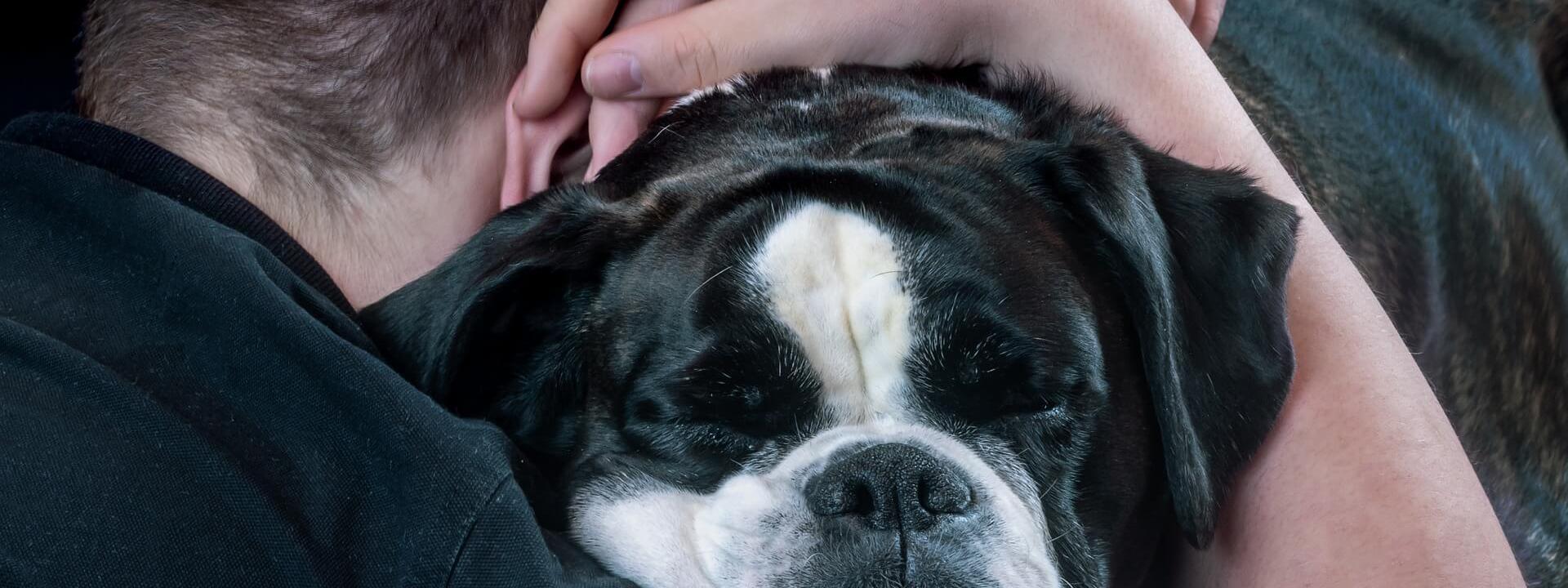The Human Animal Bond
We all know that pets make our lives better on an emotional level, but new research into the Human Animal Bond (HAB) shows us that our pets improve all aspects of our lives. This bond is not just beneficial to us, but to our pets as well. It is a mutually advantageous and powerful relationship. This bond includes emotional, psychological and physical interactions and benefits. Let’s take a quick look at this bond and how we can nurture it.
The American Veterinary Medical Association’s committee on the Human-Animal Bond defines the human animal bond as: ”the mutually beneficial and dynamic relationship between people and other animals that is influenced by behaviors that are essential to the health and well-being of both.” The HAB helps both people and their pets. Scientific research proves this by demonstrating neurochemical changes in both people and animals after they interact together. These neurochemicals increase the feelings of elation, energy, happiness and nurturing that occur after human animal interactions. These neurohormones include: dopamine, endorphins and oxytocin. On the other side, cortisol levels, that can be caused by stress, are decreased in both sides of the HAB. These physiologic changes lead to calming effects on the human and their pet. There is a decrease in their blood pressure and heart rate. There is also an improvement and decrease in anxiety and depression when pets and people interact with each other.
Numerous studies support the positive effects pets have over our mood, pain and physical health. Following is a list from real studies provided by Pet Partners:
• Animal presence can positively affect social interactions with children with autism spectrum disorder
• Fibromyalgia patients experience less pain and an improved mood when there is a therapy dog in the waiting room
• Pet ownership lowers the blood pressure response to stress
• Owning a pet may decrease the risk for cardiovascular disease
• Therapy animals in pediatric cancer settings encourage patients to undergo treatment.
Pet ownership and interaction give social support to their owners. Human relationship and attachment theories help us to better understand the emotional and supportive aspects of the HAB. Studies have shown that pets can serve a similar role in people’s lives as their human significant others, family and friends. There are many health benefits found in companionship with animals. These include:
• Decreased loneliness
• Stimulate talking and conversation- to and about the animal
• Encourage touch and care
• Focus of attention ie. Useful in Alzheimer’s patients
• Stimulate exercise- for both the human and the animal
• Encourage laughter
• Encourage social contact ie. Animal helps be a mediator of conversation
A healthy bond starts with a healthy body. Follow these guidelines to keep your pet healthy and happy as long as possible.
• Annual wellness exam
• Regular screening for infectious diseases ie. Heartworm, Lyme disease, Feline Leukemia
• Regular immunizations based on you and your pet’s lifestyle and your veterinarian's recommendation
• Routine deworming and parasite protection
• At home and professional dental care
• Appropriate grooming including brushing, bathing, ear cleaning and nail trims
• Good nutritious diet
• Regular exercise
Next is the fun part—spending quality time with your pet to nurture both of your lives. This doesn’t have to be any special event. It can be part of your daily routine, playing games, sharing treats or cuddling. Taking time to truly focus on your relationship with your pet shows you just how much you need your pet and how much your pet needs you. The Human Animal Bond is truly life giving to both parties.

